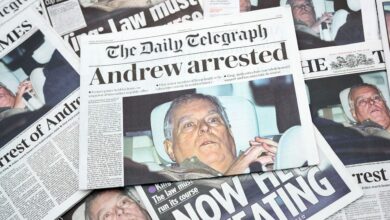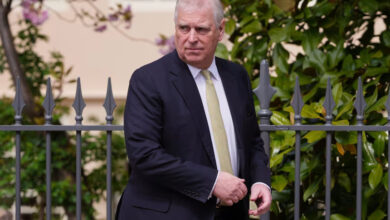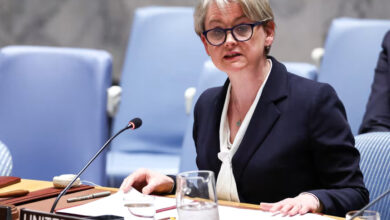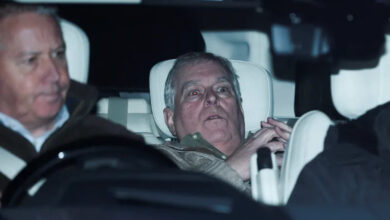Bank directors have been ordered to monitor assets frozen in the wake of the popular uprising in Egypt. The order came from the head of the Central Bank of Egypt, Farouk al-Oqda, according to a senior source in the banking sector.
Egyptian authorities ordered the freezing of the bank accounts of several ministers and businessmen following numerous reports submitted to the general prosecutor during mass protests that led to the ouster of President Hosni Mubarak.
“We do not want to engage in disputes with the general prosecutor,” al-Oqda told bank managers, warning them against allowing the owners of frozen assets to transfer money to relatives’ accounts, even within the same bank.
UK business minister Vince Cable said on Sunday that there should be an international approach toward dealing with assets held secretly overseas by deposed Egyptian President Hosni Mubarak and his family.
Asked if Britain would follow the lead of Switzerland, which has frozen those of Mubarak's assets held there, Cable told BBC television: "I was not aware that he had enormous assets here, but there clearly needs to be a concerted international action on this."
A spokesman for the UK’s Serious Fraud Office (SFO) said the financial crime agency was looking for assets in Britain linked to Mubarak in case there was a request from Egypt, the European Union or the United Nations to seize them.
Egypt's ambassador to London, Hatem Seif al-Nasr, said he had no information about any of Mubarak's assets. "Truly, about the money I have absolutely no knowledge," he told BBC TV.
So far, only Switzerland has announced a freeze on assets that might belong to Mubarak, who stood down on Friday after 30 years in power. Switzerland also froze the assets of Tunisia's former president Zine al-Abidine Ben Ali, who was ousted by a popular uprising last month.
Swiss President Micheline Calmy-Rey told the Sonntags Zeitung in an interview on Sunday that freezing Mubarak's assets should motivate Egyptian authorities to ask for legal assistance and help prevent the withdrawal of funds. She added that Switzerland had to “ensure it did deny a haven for dirty money … It cannot be that right at our door people embezzle state funds and put them into their own pockets.”




